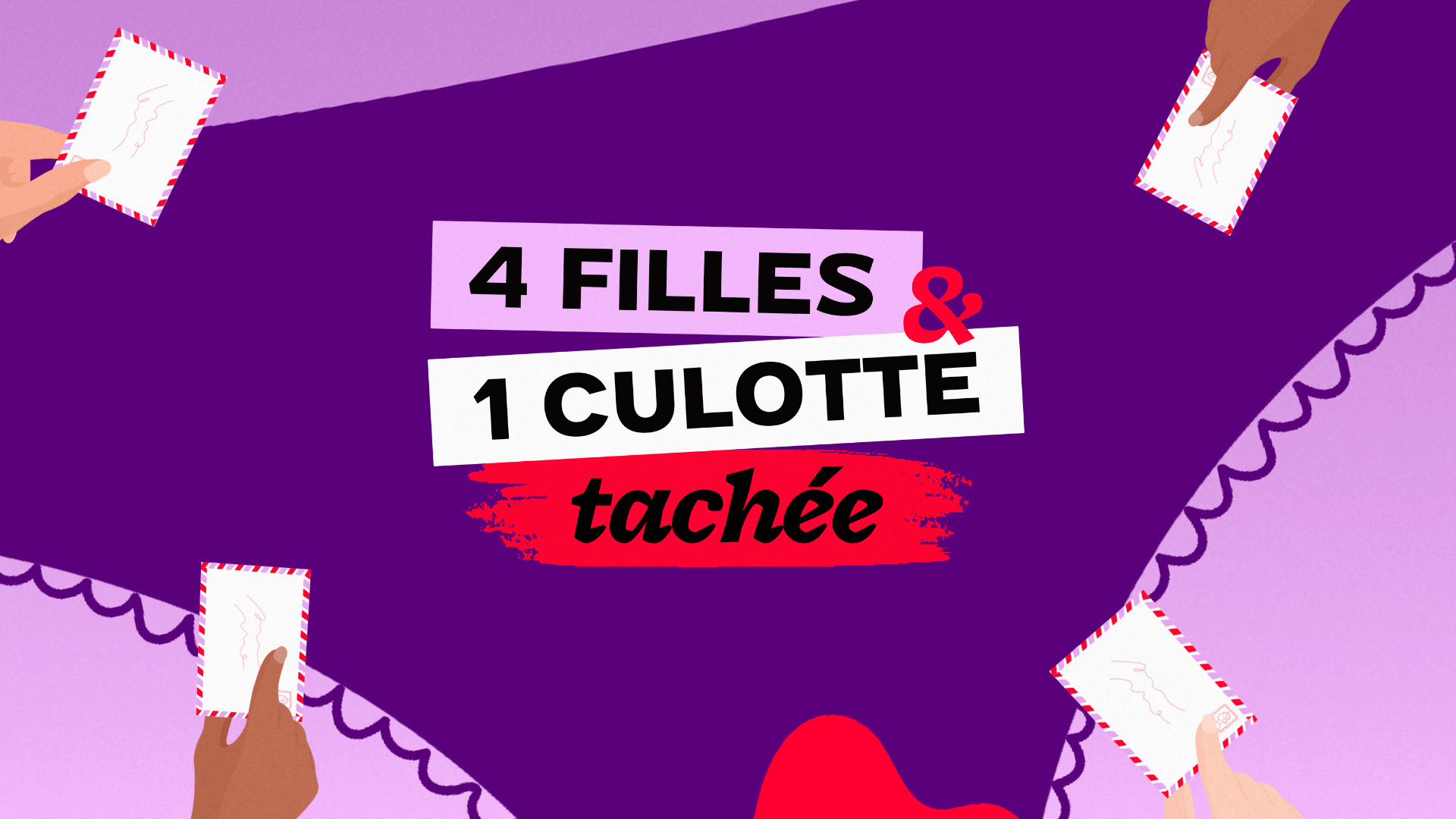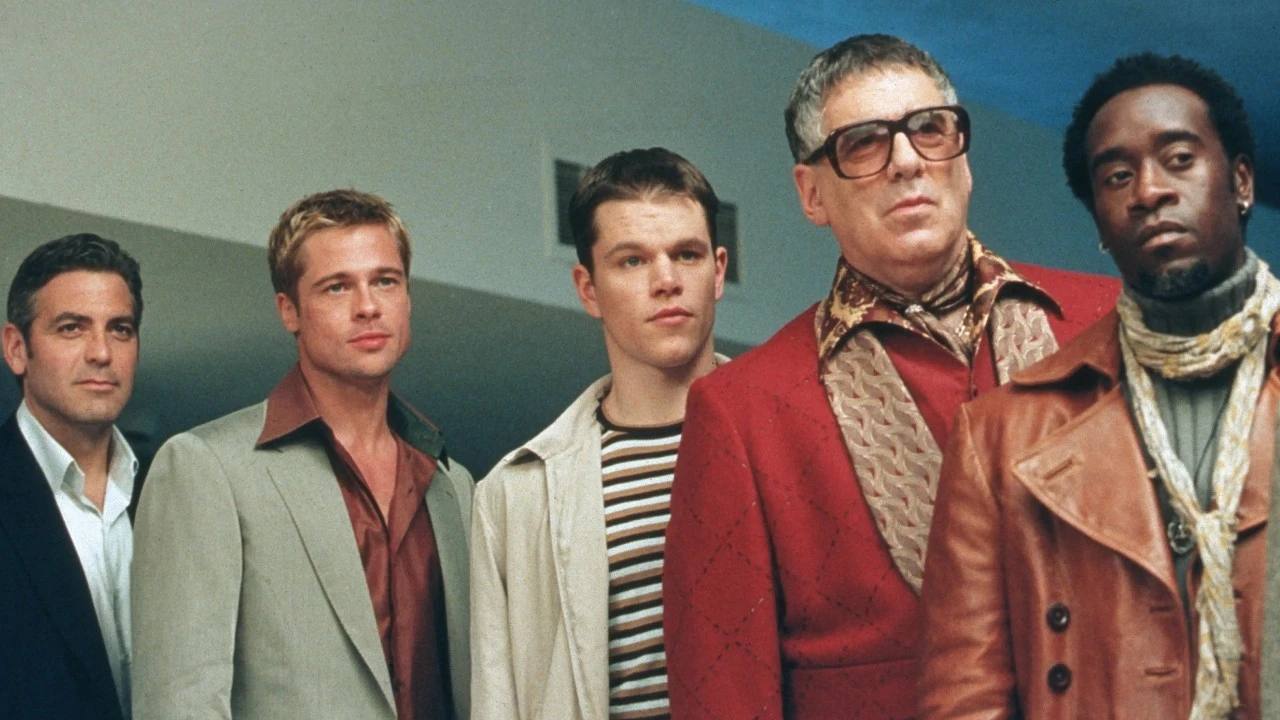Welcome 4 girls and 1 stained pantiesa Podmoizelle and Plan International France. The NGO that works all over the world for the rights of children, young people and equality between girls and boys. Four girls from four different countries exchange packages containing the same thing: the health protection they use every day and a letter telling about their first cycle.
Thereby, 4 girls and 1 stained panties draws a landscape of the taboos that have yet to be eliminated around the world about menstruation. Because if more than 80% of girls in France believe that periods remain taboo main in developing countries, they do not always measure the harmful impact of these received ideas on the daily life of the inhabitants of these countries.
For more than eight out of ten girls, the awareness of this discrimination revolt them, 80% of them ask governments to address inequalities caused by lack of access to menstrual hygiene in the world. So that every girl and every woman are free, every day of the month.
Rebecca, a Ugandan teenager, who takes her pen to write to Parbati, a young Nepalese.
Bye bye, Parbati!
Myself, it’s Rebecca, and I’m sixteen. I live a long way from your mountains, as I am there Uganda, in the east of the country, near the Tororo rock. It is almost always sunny there, and I like to escape the heat by sitting in the shade of a large banana tree in my backyard. This is where I live, where I grew up, among the banana and mango trees, with my family, my eight brothers and sisters and my parents, in our little house that I find nice, with its brick walls, its four large windows and its tiled roof.
Today, I’m telling you about my first periods and how lucky I was to have them at fifteen instead of twelve or thirteen.. Because in a few years, for me, everything has changed in terms of menstruation.
Let me talk to you first about my daily life. Like many young girls, even like you I hope, at fifteen I went to school ; I learned English, history, biology, math. But maybe my school isn’t like yours.
We have they often run outdoors, on chairs placed on the dirt floor, lined up in our pretty pink or blue uniforms. We don’t always have a table, books or supplies, but we learn orally, through patience and repetition. There are several dozen of us, girls and boys, of very different ages and who sometimes lead very different lives.
The taboos surrounding menstruation and pregnancy persist in some parts of the world
A few years earlier, a girl in my class got pregnant. She was only thirteen. I never knew the details, but it appears he was an older man, from elsewhere, to have it took her virginity for some goods. Textbooks, hygiene products.
This teenager came from a very poor family, even more so than mine – we, thanks to various small sources of income and the work of all family members, we are privileged to have enough to eat most of the time, even if meat is in short supply, and not having to beg or monetize our bodies. But not everyone is that lucky.
This girl was pregnant at thirteen and it was very difficult for her. Her body was struggling to cope with the pregnancyand as regards her mental health, the judgments of the village became complicated, even of the other students, who made fun of her and no longer respected her, because her child’s father was gone.
After only a few months, even before her tummy was noticeably swollen, she stopped coming to class. It seems that his parents no longer saw the point of sending him theresince she was going to be a mom anyway, and which mother needs education?
I often think about her. I wonder how she is doing. I wonder if she wouldn’t have preferred it continue studying while educating your child. I think if.
In the same year, I remember a girl screaming when she saw blood dripping between her thighs through her dress. It was her first time in this school and he had never heard of menstruation ; she thought she was dying, that she had pierced herself with a nail, that she was seriously ill.
I remember the mess made by the older kids who laughed at her, and that the teacher immediately sent to the courtyard, with the other students, to have some privacy. I remember the girl no longer came to class during her periodfor lack of adequate protection: she had to stay at home, use dirty rags to soak up the blood, as I had seen my mother and older sisters do.
I remember I thought to myself that I hope I never bleed like thisespecially in front of everyone, and this prevents me from going to school.
Giving access to menstrual protection for everyone is one of Plan International’s missions
It’s still. I too, two years later, I bled in school. But I was much more prepared.
Because in the meantime the teams of International Plan they had set up their workshop in my village, which changed my life and that of many girls – and boys! – from here.
Regularly, the women of Tororo, who make reusable pads for AfriPad, come to teach us how to make them too. Students of both sexes meet for sewing workshops: with clean fabrics we produce washable, absorbent and comfortable protectors.
I know disposable pads and tampons, but you can’t rely on them here. In my country it is rarely found and it is very expensive, especially since the beginning of the Covid-19 pandemic which made it very difficult to find many foodstuffs, driving up prices. By the way, in the workshop, we also sewed masks to help everyone protect themselves!
While we sew, by hand or on the sewing machines brought to us International Planwe also learn. The professionals tell us how the rules work, what happens in the body during the menstrual cycle; we are told why some girls have a lot of pain and others not at all, why some bleed a lot and others a lot less. Above all, we are told periods are normal and the sign of a properly functioning body.
We are taught to protect ourselves from diseases, whether they are caused by the scraps of fabric used for too long as protection, by a lack of hygiene because access to water it’s not always easy, or through sexual intercourse. We are taught the role of contraception and we remember it no one should force a woman to do anything.
In this pack you will find two cloth napkins; the first, I sewed it myself, the second one was made by my older brother when he was seventeen. I had always known him at best indifferent to women’s problems, at worst he laughed; I remember she laughed when a girl had a loss, or she had to stay home because of her period. She doesn’t behave like that anymore.
She still doesn’t feel comfortable talking about periods in front of everyone, but sometimes we discuss them among ourselves, out of sight. He asks questions and I answer him in the best possible way, or I advise him to ask someone International Plan to the next workshop. Now he understands my cramps, my tiredness and the importance of adequate protection. She didn’t say it openly, but I think he regrets his attitude earlier. He doesn’t really blame him: he didn’t know.
As I was fortunate to have access to seminars before my cycle and the education that comes with it, I wasn’t surprised when I realized I was bleeding. I had detected the warning signs, the different sensations than usual, my sore breasts, my changing mood from the previous days, and I knew I was the age where we often start menstruating.
I just hoped it didn’t happen in class, but you don’t always get what you want in life …
” I was able to live my first period in a calm and polite waywith adequate protections “
Luckily, Organize international workshops there had been. The guys didn’t laugh at me when I asked to see the teacher one on one to explain my problem after seeing some blood in my panties – luckily it hadn’t crossed paths yet. Since I had memorized the ultimately very simple use of washable towels, I was able to use one that I made and go back to school after only a few minutes.
These towels they are used by the villagers, and they are sold in the markets by several women like my mother, who earn a little extra money for their families. The taboos are still there, but they are gradually regressing in the face of the importance of having access to reusable protection that does not cause disease like the dirty rags of yore.
Many men, my father the first, have no problem with having their wives sell things related to menstruation ; they know it’s part of life, that we have to take care of it, how we take care of our hair or their beard.
It’s crazy to realize that within a few years, I was able to live my first period in a calm and polite way, with adequate protection, while many girls before me, and many girls in the world, are not so lucky. May they be laughed at, banished, humiliated and that they observe their rules without being able to remain worthy of them. That they are deprived of school, education, the future, for lack of a simple towel to put in their panties.
I hope these protections that I am proud to have made with my brother are useful to you, Parbati. Or you won’t need it, because you already have everything you need! But I know that, depending on the places in the world, it’s too rare, and so onOnly yesterday, in my village, the girls were in danger from their periods.
I too hope to be able, in the future, help girls and boys understand that menstruation is normalthat we should not be ashamed of it and that everyone has the right to healthy protections.
I kiss you on both cheeks,
Rebecca
4 Girls and 1 Stained Panties is a four-episode podcast written by Mymy Haegel, directed and set to music by Mathis Grosos, starring Aïda Djoupa, Adeline Labbé, Sophie Castelain-Youssouf and Marie Chereau. It is directed by Audrey Godefroy, sponsored by Coralie Monange and produced by Adeline Labbé, Eva Dillais and Sophie Castelain-Youssouf.
More articles on
Rules
-
Top Chef 2022 winner Louise Bourrat confides in her endometriosis in the mid-final
-
Among the 15-24 year olds we are convinced that contraception should not rest on the shoulders of women
-
At Roland-Garros, player Zheng Qinwen talks about the impact of her rules
-
In the absence of toilets on its freight trains, the SNCF offers menstrual panties to drivers
-
Spain offers menstrual leave, the first in Europe!
-
I tested Fava and it changed my rules
-
Vintage panties are also for lochia (and more colorful than maternity t-shirts)
Source: Madmoizelle
Lloyd Grunewald is an author at “The Fashion Vibes”. He is a talented writer who focuses on bringing the latest entertainment-related news to his readers. With a deep understanding of the entertainment industry and a passion for writing, Lloyd delivers engaging articles that keep his readers informed and entertained.





